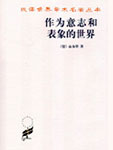Chapter 1 Part I The World as Representation §1
Submission to the appearance of the principle of sufficient reason
object of experience and science
Jump out of childhood, friends, wake up!
—J.J. Rousseau
"The world is my representation": this is a truth, valid for every living and knowing creature; but only man can bring it into reflective, abstract consciousness.And, if man does this, then philosophical thinking occurs in him.Then, he will understand clearly and precisely that he does not know the sun or the earth, but is always only the eyes, and it is the eyes that see the sun; Existing as a representation, that is to say, the world exists only in relation to something else, a "representer."The "presenter" is man himself.If there is one truth that can be said a priori, it is this truth, for it is the statement of the form that all possible conceivable experiences share.It is more universal than everything, than time, space, causality, etc., because all of them presuppose this truth.Since we have recognized these forms as particular configurations of the principle of sufficient reason, if each of them is valid only for a particular type of representation, then, on the contrary, the separation of object and subject is the common form of all those types. .The separation of object and subject is such a form: any representation, no matter what kind, abstract or intuitive, pure or empirical, is only possible and imaginable under this common form.Therefore, there is no truth that is more certain than this, which does not depend on other truths, and does not need a proof; namely: that everything that exists for "knowledge", that is, the whole world, is only related to the subject. The object of observation, the intuition of the observer; in a word, it is only appearance.Of course, what is said here is valid for the present, as well as for any past and any future, for the farthest and the near; because what is said here is valid for time and space itself; and only in time and space, all These [past, present, future, far and near] can be distinguished.Everything, everything that belongs and can belong to the world, is inevitably conditioned by the subject and exists only for the subject.The world is appearance.
This truth is by no means new.It is included in the skeptical point of view from which Descartes started.But Berkeley was the first to say it outright; and in spite of the indefensibility of the rest of his philosophy, he has made an immortal contribution to philosophy on this point.The first shortcoming of Kant is his ignorance of this proposition, which will be explained in detail in the appendix of this book.On the contrary, Vedanta philosophy is considered to be the work of Viyasha, and the basic principles discussed here have appeared as fundamental propositions there, so Indian wise men recognized this truth very early.William Jones testifies to this in his recent essay "On Asian Philosophy" (Asian Studies, Vol. IV, p. 164), when he says: "The fundamental teaching of the Vedanta school consists not in denying the existence of matter, It is not to deny its solidity, impenetrability, and extended shape (to deny these would mean madness), but to correct the secular concept of matter, to maintain that matter has no essence independent of the perception of the mind, and to maintain the existence of and perceivability are interchangeable terms.” These words amply show the coexistence of empirical reality and transcendental ideality.
In this first book, we consider the world only from the above-mentioned aspect, that is, only as appearance.As for this consideration, which, without detracting from its truth, is one-sided and consequently induced by some arbitrary abstraction, it declares the contradiction in every man with which he assumes that the world Just his appearance, on the other hand he can no longer shake off the assumption.But the one-sidedness of this investigation will be supplemented in the next article, by another truth.This truth is not as direct and clear as the one we started from here, but can only be reached through deeper exploration, more difficult abstraction, and the effort of "distinguishing differences and synthesizing similarities".It must be serious, and must be serious, if not terrible, for everyone.This other truth is what every man himself can and must say: "The world is my will."
Before making this addition, that is, in this first book, we must firmly examine this side of the world from which we start. The aspect of "knowability": it is therefore also necessary, without any resistance, to regard the presently present object, even one's own body (we will come to this further) as mere appearances, and call them only appearances.We hope that in the future everyone will understand with certainty that in doing this we are merely setting aside the will; and that the will is what alone constitutes the other side of the world; will.As for a kind of reality, it is not any aspect of the two, but an object in itself (Kant's "thing in itself" unfortunately degenerates into such an object unknowingly), that is a monster in a dream ; and to admit such a monster would be a misleading will-o'-the-wisp in philosophy.

